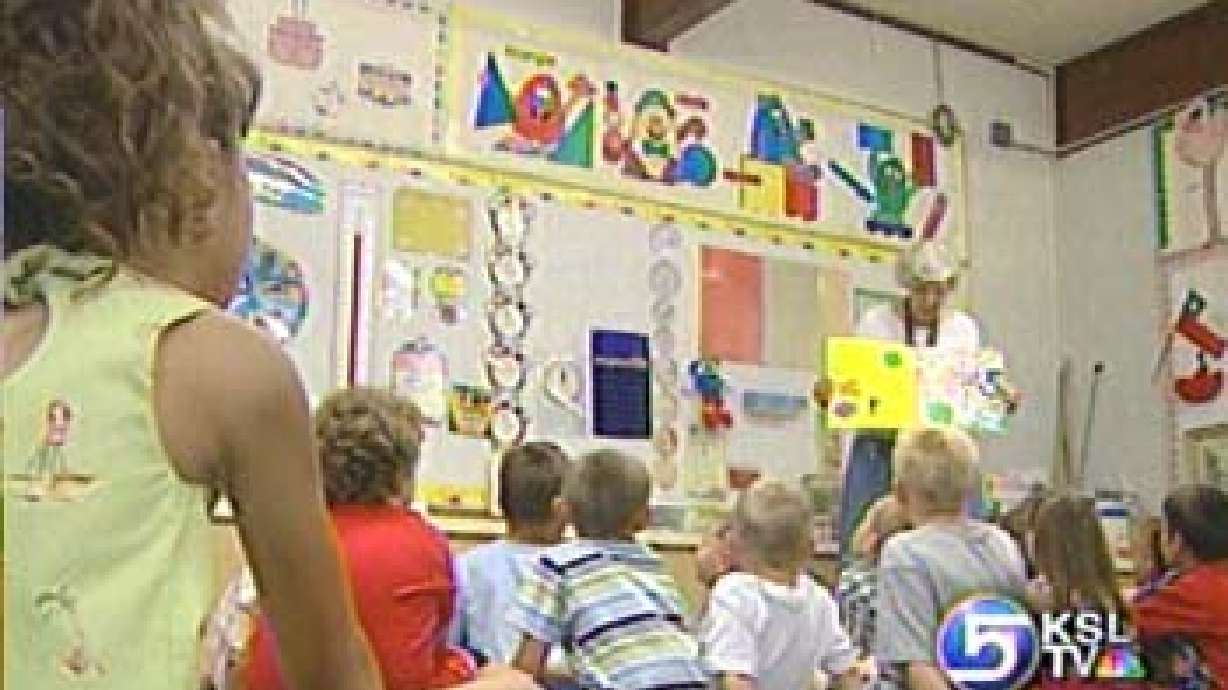Estimated read time: 3-4 minutes
This archived news story is available only for your personal, non-commercial use. Information in the story may be outdated or superseded by additional information. Reading or replaying the story in its archived form does not constitute a republication of the story.
SALT LAKE CITY (AP) -- Utah schools will have to hire at least 44,000 new teachers by 2014, according to a new study.
To fill the need, one state lawmaker wants to give newly-hired and current teachers a $1,000 one-time bonus and a $1,000 raise, and provide enough money to hire 1,000 new teachers. It has an $80 million price tag.
Rep. Ron Bigelow, R-West Valley and co-chairman of the chief budget committee on Capitol Hill, said his "Education 1000" plan would help keep experienced teachers in the classroom and bring in new ones. Passing it would also send a message to the education community that legislators want to reduce class size, he said.
"There are teachers out there. But they are going to other states or choosing to work other jobs that pay better," Bigelow said. "We need to encourage them to stay, and to do that, there has to be an upward mobility in their salaries."
The Utah Education Supply and Demand Study was submitted Friday to the Utah Board of Education. The study suggests bonuses might help make teaching a more attractive career prospect. Teacher pay in Utah is among the nation's lowest.
The Utah State University study estimates the state will need to hire more than 6,000 teachers a year in the latter part of the decade.
Teaching colleges are growing, but the number of graduates churned out since 2000 isn't. Numbers even dipped between 2003 and 2004, the study states.
Just more than half of those graduating from teaching colleges take jobs in Utah classrooms. Half the new teachers quit in the first five years. And Utah has more than 12,500 residents who are certified to teach but aren't working in education, according to the study.
"We see what's coming down the mountain," said Byron R. Burnham, professor and head of USU's instructional technology department, who authored the study with professor Nicholls Eastmond and graduate student Debora Escalante. "But are we being adequate in our response?"
The study fleshes out previous USU studies, using a broad range of data from the State Office of Education and Governor's Office of Planning and Budget.
Among its findings:
--Utah's school-age population is expected to grow by 28 percent, to 635,800 students by 2014.
--Teacher ranks will need to increase by as much as 23 percent to cover that growth.
--Attrition, just above 6 percent in 2003-04, is expected to exceed 13 percent by 2014.
--More than 46 percent of today's teachers will become eligible for retirement in the next decade.
--Teacher shortages are most pronounced in special education, speech pathology, math and science.
The study predicts that Utah's fastest-growing districts -- Jordan, Alpine, Washington, Nebo, Davis, Tooele, Iron, Wasatch and Cache -- will need to increase their teaching ranks up to 60 percent by 2014.
Utah Education Association President Pat Rusk said she isn't surprised by the findings.
"It's based on economics," Rusk said. "We can't attract or retain them because of salaries."
Rusk would rather see $80 million added to the state's per-student funding formula, the WPU, for the sake of permanence and local control.
The study suggests offering scholarships, better pay for teachers of subjects in the greatest need and low-interest mortgage loans for educators. It says teachers are more likely to stick around if they feel supported in their schools, such as through peer interaction, administrative support, professional development opportunities and recognition of achievement.
A number of bills this legislative session also seek money to help teachers, including a $36 million request to shrink class size in kindergarten through third grades, $21 million to boost beginning teachers' pay, and $500,000 for teachers to meet teacher quality standards or earn national board certification.
(Copyright 2006 by The Associated Press. All Rights Reserved.)








